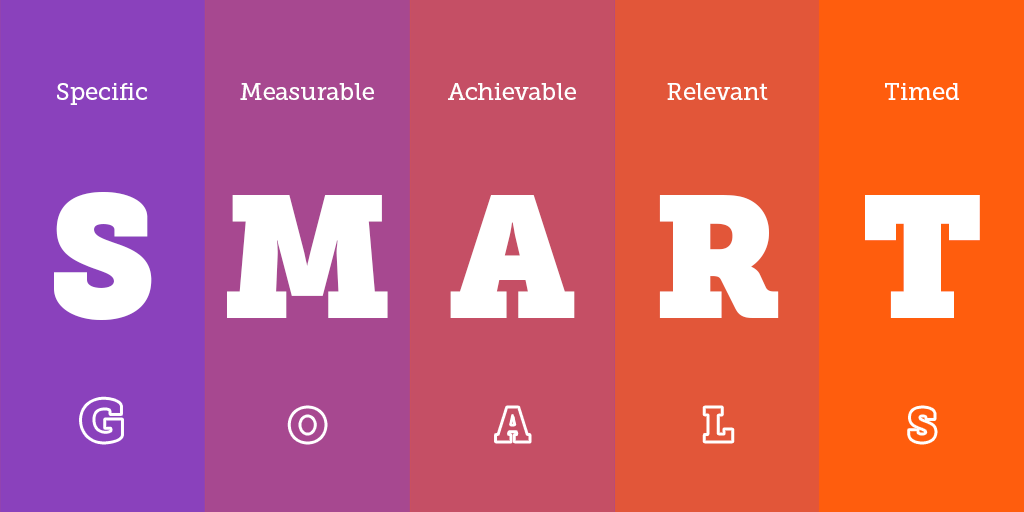
Setting goals at work can help you stay focused and motivated on the tasks that are important for your professional development. SMART is an acronym that stands for Specific, Measurable, Achievable, Relevant, and Timely – criteria that can help to ensure success when you set goals for yourself in the workplace.
In this blog post, we will discuss what SMART goals are and best practices for setting them at work. We will also review tips to ensure goal achievement as well as advantages of taking the time to put SMART goals into action in your work environment. Finally, we will explain why it is important to include SMART goal-setting in your workflow.
If you want to get a head start to set SMART goals for your team, try the world leading SMART goals software tool called Team Compass. It’s free for up to 3 people and anyone can enjoy a free trial. Sign up here.
Defining SMART goals for work
A SMART goal is a specific, measurable, achievable, relevant and time-bound objective. These goals are designed to provide guidance and set expectations for both individuals and teams in order to reach desired outcomes.
Defining SMART goals results in clear direction of what needs to be done to achieve the desired outcome, which can help increase motivation and focus on reaching that target.
For example, instead of setting an ambiguous goal such as “become better at customer service” it would be more effective to set a specific goal such as “improve customer satisfaction rating by 10% within 2 months”. This kind of targeted approach also makes it easier for managers or supervisors to track progress towards achieving the goal.
Defining SMART goals helps ensure that everyone involved is working towards a common aim with clarity around roles and responsibilities along the way.
How to set SMART goals at work
When setting SMART goals at work, it is important to start by defining the goal in a concise and specific way. This should include what needs to be done, the expected outcome, and when this has to be achieved by.
Consider any resources that may need to be allocated or any potential obstacles that could prevent success. It is also helpful to create smaller milestones along the way so progress can be monitored throughout the duration of achieving the larger goal.
Once you have identified your goal and set expectations for yourself or team members, it is essential to remain committed and actively track progress towards reaching these objectives; creating reminders in calendars or breaking down tasks into weekly actions can help with accountability and staying on track.
Finally, make sure you reward yourself for successful outcomes as a form of positive reinforcement – remembering why you set such ambitious goals in the first place will help fuel continued motivation throughout your journey!
Tips for achieving your SMART goals
Setting SMART goals is an important part of achieving success in any professional endeavor. Once you have identified the goal and set expectations for yourself or team members, it is essential to create a plan that will help ensure these objectives are met. Here are some tips for achieving your SMART goals:
First, break down the objective into smaller tasks and milestones as this can make it easier to stay on track throughout the duration of achieving the goal.
Why not involve other stakeholders in setting and monitoring progress towards reaching objectives; having someone else hold you accountable can be incredibly helpful in ensuring successful outcomes.
It is also important to keep reviewing your goals weekly so they remain relevant and up-to-date with changing circumstances – if needed adjust deadlines or resources accordingly.
Finally, reward yourself when small steps have been taken towards achievement as recognition helps maintain motivation over time!
The benefits of setting SMART goals

Setting SMART goals is an effective way to increase productivity and achieve desired outcomes. By providing clear objectives with specific targets, expectations are set for both individuals and teams. This can help focus efforts towards achieving the desired result in a more efficient manner by removing any ambiguity from the goal-setting process.
Sharing SMART goals enables progress to be monitored over time as smaller milestones are reached along the way – this allows for timely course corrections if needed or adjustments depending on how circumstances change during the duration of achieving these objectives.
Tracking SMART goals helps ensure that everyone involved is working towards a common aim with clarity around roles and responsibilities while increasing motivation throughout the journey; this kind of targeted approach makes it easier for supervisors or managers to track progress and determine whether certain strategies may need adjustment or not in order to reach successful outcomes faster.
Why you should set SMART goals at work
Setting SMART goals at work is an effective way of increasing productivity and achieving desired outcomes. By providing clear objectives with specific targets, expectations are set for both individuals and teams. This can help everyone involved focus their efforts towards a common goal in the most efficient manner possible.
SMART goals enable progress to be monitored over time as smaller milestones are achieved along the way – this allows for timely course corrections or adjustments depending on how circumstances change during the duration of achieving these objectives.
Setting SMART goals helps ensure that everyone is working towards a common aim with clarity around roles and responsibilities while motivating team members to remain committed throughout their journey; this kind of targeted approach makes it easier for managers or supervisors to track progress and determine whether certain strategies may need adjustment or not in order to reach successful outcomes faster.
Having well-defined objectives also provides employees with greater job satisfaction by allowing them to understand what they have been tasked with doing in a more tangible sense – as opposed to simply following instructions blindly without any insight into why they’re being asked to do something in particular.
Moreover, setting specific deadlines and creating smaller milestones along the way helps keep team members accountable while providing them with increased motivation as they witness realtime results from their hard work; ultimately inspiring confidence within each individual contributor that can lead to better performance overall!
In conclusion, setting SMART goals is an incredibly helpful way to structure and approach challenges at work. By breaking down large goals into smaller, manageable tasks, you can stay organized and motivated.
Additionally, the structure of a SMART goal helps you identify your progress (as well as obstacles) throughout the goal-setting process. Knowing this information can be used to help course-correct and continue striving towards your final milestones.
As you can see, setting SMART goals at work offers potential to help improve focus, quality of work as well as overall productivity – paving the way for great success!
If you now want to set SMART goals for your team, try the world leading SMART goals software tool called Team Compass. It’s free for up to 3 people and anyone can enjoy a free trial. Sign up here.